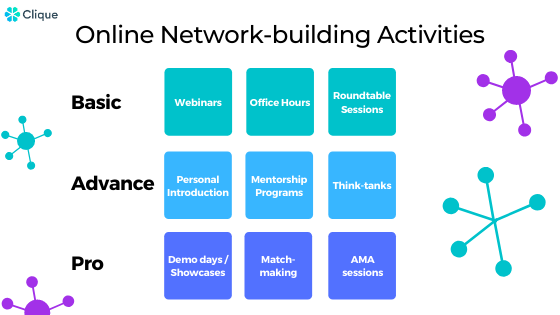Introduction: Networking is a crucial aspect of growing a small business and taking it to the next level. In today’s competitive market, establishing and nurturing relationships with industry peers, potential clients, and partners can significantly impact the success and sustainability of a small business. This blog will delve into the importance of networking for small businesses, why it is crucial, and how businesses can leverage networking effectively to drive growth and success.
Why Networking Is Crucial for Small Businesses
Networking plays a vital role in the growth and success of small businesses. Here are some key reasons why networking is crucial:
Elevate Your Small Business with Powerful Networking
Subscribe now and receive exclusive tips and resources for success!
Increased Visibility and Exposure: By actively participating in networking events, conferences, and industry gatherings, small businesses can enhance their visibility and reach a wider audience. Building a strong presence in the industry can attract potential clients, investors, and partners.
Building Relationships: Networking provides small businesses with the opportunity to build meaningful relationships with industry professionals, potential clients, and partners. These relationships can lead to collaborations, partnerships, and new business ventures that can drive growth and expansion.
Access to Resources and Expertise: Through networking, small businesses can gain access to valuable resources, knowledge, and expertise. Connecting with a diverse network of professionals can provide insights, advice, and opportunities for growth and improvement.
Opportunities for Collaborations: Networking opens doors to collaborations, partnerships, and new business ventures. By connecting with like-minded individuals and businesses, small businesses can explore opportunities for joint projects, marketing initiatives, and strategic alliances.
How to Leverage Networking for Small Business Success
To harness the power of networking for small business success, consider the following strategies:
Attend Industry Events: Participate in industry events, conferences, and trade shows to meet and connect with industry professionals, potential clients, and partners. These events provide networking opportunities and insights into the latest industry trends and developments.
Join Networking Groups: Join networking groups, associations, and communities related to your industry. These groups offer a platform to expand your network, share insights, and engage in discussions with like-minded professionals.
Utilize Social Media: Leverage social media platforms to connect with industry influencers, thought leaders, and potential clients. Engage in discussions, share valuable content, and build relationships with key stakeholders in your industry.
Participate in Networking Events: Attend networking events, workshops, and seminars to meet new people, learn from industry experts, and exchange ideas. These events provide opportunities to build connections, gain insights, and enhance your networking skills.
Offer Value to Your Network: Build strong, lasting relationships by offering value and support to your network. Share resources, provide assistance, and offer help to your connections to establish trust and credibility within your network.
Want to take your small business to the next level? Master the art of networking! Check out this blog post for tips and tricks: [insert link] #smallbusiness #networking101
Case Studies: Real-Life Examples of Small Businesses That Succeeded Through Networking
There are numerous success stories of small businesses that have thrived through strategic networking. Let’s look at some real-life examples:
 Image courtesy of nitzan-gal.medium.com via Google Images
Image courtesy of nitzan-gal.medium.com via Google Images
Case Study 1: Xyz Marketing Agency
Xyz Marketing Agency expanded its client base and revenue by actively networking with industry professionals and attending networking events. By building relationships with key stakeholders, the agency secured new clients, partnerships, and collaborations that propelled its growth and success.
Case Study 2: Abc Consulting Firm
Abc Consulting Firm leveraged networking opportunities to gain valuable insights, resources, and expertise from industry peers and experts. By actively participating in networking groups and events, the firm enhanced its knowledge base, expanded its service offerings, and established itself as a trusted advisor in the industry.
Elevate Your Small Business with Powerful Networking
Subscribe now and receive exclusive tips and resources for success!
Conclusion
In conclusion, networking is a powerful tool for small businesses to establish themselves, build relationships, and drive growth and success. By actively engaging with industry professionals, attending events, and nurturing relationships, small businesses can unlock new opportunities, gain insights, and propel their businesses to new heights. Networking should be a priority for small business owners looking to thrive in today’s competitive business landscape.





